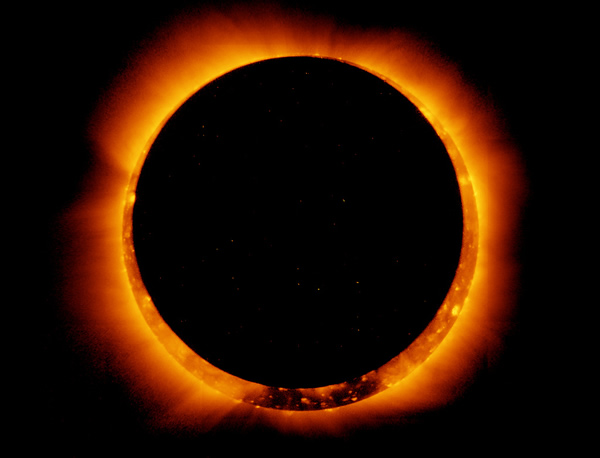 Torah Sparks
Torah Sparks
Genesis 47:28 – 50:26
The long story of Joseph and his brothers is brought to a close in this final portion of the book of Genesis. Father and son, Jacob and Joseph, both end their days in this Torah portion and the Patriarchal era of Jewish history ends with them.A popular convention of good story telling is that the ending of the story ties up – brings to closure – the main themes and issues raised at its beginning. So, if we turn back to the start of this narrative we can ask whether the end has brought a conclusion to that which was opened up at the start. A key element of the opening of the Joseph story is his telling his family of his two dreams. In one of them he dreams of his brothers’ sheaves bowing down to his sheaf. When, oblivious to how they might react, Joseph relates the dream to his brothers, they understand that this is Joseph’s expression of his desire to lord it over them. And their resentment grows. The second dream, told to his father as well as to his brothers, is more grandiose still. This time it is the sun, moon and eleven stars that bow down to him. His brothers hate him even more while his loving father asks in anger and perplexity, “will I, your mother and your brothers actually come and bow to the earth before you?” (Gen. 37:10)
The unfolding of the rest of the Joseph story is understood to be a recounting of the circuitous route by which these dreams reached their fulfillment. Finally, by last week’s Torah portion, Joseph has succeeded in bringing all his brothers to Egypt and they have groveled before him. So the first dream was, indeed, fulfilled. But what of the second? He has also brought his father to Egypt so that he can care for him in his final years. But we do not read of Jacob bowing before Joseph.
Another difficulty regarding the second dream is the apparent inclusion of Joseph’s mother, symbolized by the moon, in the bowing scene. Rachel was already dead by the time of this dream. How could it be fulfilled? The midrash struggled with this question. It suggested two possible answers. One was that the moon symbolized Rachel’s handmaiden, Bilhah, who was a surrogate for Rachel in her life and after her death. But Nachmanides was not pleased with this solution and maintained that there was good cause to believe that Bilhah had also already died by the time the family went down to Egypt and bowed before Joseph. He opts for the second suggestion in the midrash (cited by Rashi and other commentators as well): “There is no dream without some elements of nonesense.” But this suggestion, while it is probably true in general, is not satisfying as a reading of this finely and tightly wrought tale.
Perhaps we may find the fulfillment of the second dream here, in our Torah portion. It is as Jacob approaches death that he must place himself at the mercies of Joseph, subordinating his position to his son’s. He begs Joseph to fulfill his wishes after his death and bring him to the ancestral burial place, the Cave of Machpeleah, to be laid to rest. “Please! Do not bury me in Egypt!” (Gen. 47:29) And when Joseph swears to do this, Jacob bows to Joseph at the head of the bed. (v. 31; see Rashbam and Hizquni ad. loc., and BTMegillah 16b) So the dream of the sun bowing to Joseph is realized.
But what about the moon/Rachel of the dream? Perhaps this element was also fulfilled, but in a more allusive, dreamlike way. A bit later Jacob speaks words that have struck everyone, since, as strange and mysterious. As he asserts his patriarchal prerogative of adopting Joseph’s two sons into the future tribal structure of the people of Israel, he interrupts himself and muses: “‘And when I was coming [back] from Padan Aram, Rachel died on me in the land of Canaan, with just a little bit of a way to get to Efrat; and I buried her on the road of Efrat’ – which is Bethlehem.” (Gen. 48:7) Why does Jacob bring up this matter here? Readers have grappled with this problem and suggested various interpretations. Is Jacob hallucinating? A more compelling insight is that Jacob may be obliquely begging Joseph to forgive him for not burying Rachel in the Machpelah Cave.
But there is another function to this irruption of seemingly suppressed memory. In so doing Jacob conjures up Rachel’s presence and summons Rachel to his side before Joseph, their longed-for son. Rachel cannot physically be present to fulfill Joseph’s dream. But she can be present in Jacob’s dream. Jacob is hoping to convince Joseph that Jacob has never abandoned Rachel; that she is always with him, even now. Although the young Joseph could never have been expected to know this, Jacob is now telling him that, when Jacob shows obeisance to Joseph, then Rachel does, too, for Jacob and Rachel are inseparable, as inseparable as the sun and the moon. As Jacob seeks Joseph’s forgiveness and hopes that Joseph will fulfill his desire to be returned to the land of Israel, he gives his son a parting gift: the final element needed for the complete fulfillment of Joseph’s early, destiny-defining dream.
Shabbat Shalom
Rabbi David Greenstein
image: “Hinode Observes 2011 Annular Solar Eclipse” © NASA Goddard Space Flight Center altered and used with permission via Creative Commons License 2.0
- Toby Stein: In Memoriam - Thu, Feb 8, 2024
- Faithfulness and Hope: Parashat Sh’lach - Thu, Jun 23, 2022
- Past Their Prime: Parashat B’ha`a lot’kha - Thu, Jun 16, 2022
